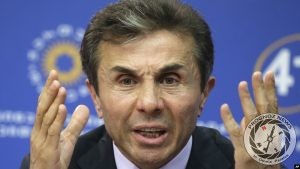Clans, Patrons and Power: The Enduring Logic of Georgian Politics

By Matthew Parish, Associate Editor
Modern Georgia presents herself as a parliamentary democracy aspiring to European integration, the rule of law and transparent governance. Yet beneath these aspirations lies a deeper and more archaic structure of power: a political culture shaped by networks of personal loyalty, family alliances and informal patronage. The country’s modern political history, from independence in 1991 to the present, can to a considerable degree be understood as a sequence of conflicts between rival clans—coalitions of elites bound less by ideology than by shared interests, origins and mutual dependence.
Historical Roots of Clan Politics
Clan-based organisation is not a modern invention in Georgia. For centuries the mountainous regions of the Caucasus sustained small, kin-based polities where authority was personal, hereditary, and enforced through reciprocity. Under the Russian Empire and later the Soviet Union, these patterns of loyalty did not disappear; they adapted. The Soviet system’s emphasis on regional party hierarchies and patronage networks rewarded those who could mobilise local loyalty in exchange for access to Moscow’s resources. Thus a form of clan politics persisted, cloaked in the bureaucratic language of socialism.
When the Soviet Union collapsed, this informal architecture resurfaced. The state that emerged under President Zviad Gamsakhurdia in the early 1990s lacked stable institutions. Power gravitated instead to regional strongmen, warlords and networks of personal allegiance. The civil war of 1991–1993 was as much a battle between competing patronage systems—one centred on Gamsakhurdia’s nationalist circle, the other around Eduard Shevardnadze’s Soviet-era network—as it was a conflict of ideologies.
Shevardnadze’s Patronal System
Eduard Shevardnadze’s long rule (1992–2003) institutionalised clan politics in post-Soviet form. His leadership was characterised by the management of rival power blocs within a fragile state: factions from the security services, regional governors and business interests competed for control over the flow of state contracts and foreign aid. Corruption became systemic, not merely as personal enrichment but as the glue binding together a coalition of mutually dependent elites. Shevardnadze’s skill lay in balancing these networks—preventing any one from becoming dominant while maintaining himself as arbiter between them.
However this system depended on equilibrium rather than reform. As younger, Western-educated Georgians became frustrated with endemic graft and stagnation, a new alliance emerged: the reformist “clan” centred around Mikheil Saakashvili, Zurab Zhvania and Nino Burjanadze. Their success in mobilising street protests during the Rose Revolution of 2003 was not merely an expression of popular will; it also reflected the defection of key bureaucratic and security networks from Shevardnadze’s camp to theirs. The transfer of power was thus as much an intra-elite shift as a democratic uprising.
The Saakashvili Era: Reform and Recentralisation
Once in power, Saakashvili sought to replace the old Soviet-style patronage structure with a more centralised and technocratic model. Corruption was aggressively targeted, the police and bureaucracy restructured, and foreign investment encouraged. Yet this “revolutionary modernisation” created its own clan: a tight circle of loyal reformers who monopolised decision-making. The ruling United National Movement became less a party of diverse representation than an instrument of executive power centred upon Saakashvili himself.
By the late 2000s, opposition groups—including exiled oligarchs, disaffected businessmen and regional leaders—coalesced into rival patronal alliances. These coalitions framed themselves as defenders of democracy against authoritarian excess, but their cohesion was driven as much by excluded interests as by ideology. The 2012 parliamentary elections, which brought Bidzina Ivanishvili’s Georgian Dream coalition to power, represented another reshuffling of elite networks rather than a decisive break from clan politics.
Ivanishvili and the Post-Revolutionary Balance
Bidzina Ivanishvili, a billionaire who made his fortune in Russia, established a new dominant clan around himself: one grounded in personal wealth, patronage and loyalty rather than formal office. Although he served only briefly as prime minister, his influence has endured through his ability to fund political campaigns, control media narratives, and arbitrate among factions within Georgian Dream. Critics describe him as a “shadow ruler,” a modern embodiment of the traditional Georgian patron, dispensing resources and protection to his followers in exchange for fidelity.
Successive governments under his influence have exhibited the same structural features: competing factions within the ruling party, each tied to a senior patron; the use of the judiciary and bureaucracy as instruments of intra-elite rivalry; and the persistence of informal decision-making channels. The opposition, divided among ex-Saakashvili loyalists, Western-oriented liberals and nationalist populists, likewise organises itself along personal networks rather than stable ideological platforms.
Clan Logic and Foreign Policy
Georgia’s foreign relations, too, often mirror its domestic clan logic. Western integration serves as a legitimising narrative for one faction, while pragmatic accommodation with Russia appeals to others who rely upon business ties or energy dependence. Competing elites have alternately courted Brussels and Moscow, not purely on principle but according to which alliance strengthens their domestic standing. Thus foreign policy becomes an extension of internal patronal competition—a reflection of who commands the resources, prestige, and security guarantees that sustain their network at home.
The Limits of Institutionalisation
While Georgia has held regular elections and developed a relatively pluralistic media environment, the underlying mechanics of power remain personal. Institutions function, but often as arenas in which clans contest rather than as neutral arbiters. This explains the country’s recurrent political crises: protests after contested elections, allegations of judicial manipulation, and cycles of revenge between successive administrations. Each transfer of power risks exposing former elites to prosecution, property seizure or exile—outcomes characteristic of a clan-based rather than institutional polity.
Between Tribe and Republic
To say that Georgian politics is entirely clan-driven would be an overstatement; public opinion, civic activism and genuine reformist impulses have all shaped her trajectory. Yet the logic of rival patronal networks continues to define the limits of its democracy. The resilience of these informal structures stems from deep cultural traditions of personal loyalty and the persistent weakness of state institutions.
Georgia’s path to mature democracy therefore depends not merely upon elections or legislation, but upon the slow transformation of political culture—from one based on patronage to one grounded in impersonal law. Until that transformation is complete, the drama of Georgian politics will continue to resemble a contest not only of ideas, but of clans—each seeking, as their ancestors did, to guard their honour, their fortunes, and their power within the rugged landscape of the Caucasus.
8 Views






